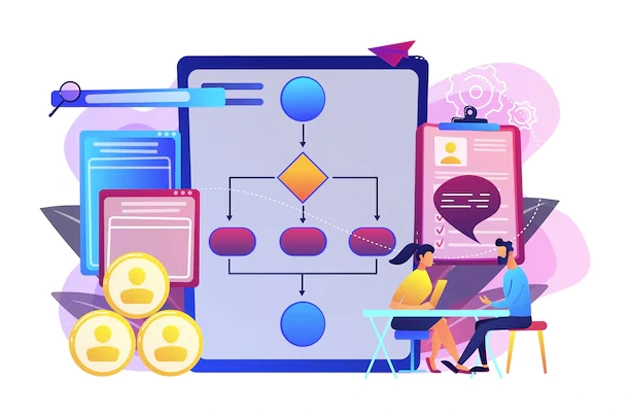Introduction
Machine learning (ML) and Artificial Intelligence (AI) algorithms have transformed people’s online experience. Whether they are shopping, scrolling through news feeds, going online on social media platforms, or browsing for entertainment, nowadays, people highly rely on AI technologies. The algorithmic tools used by these technologies help process and customize people’s personal data to give them a personalized online experience.
Although these personalization algorithms are ubiquitous, they have escaped public scrutiny for a long time. However, with growing cases of data violation and security breaches, people want to take back control over their online identities, demanding stronger user privacy controls. With Tech Talks, awareness concerning this concept has increased, educating more people about algorithmic personalization.
Unveiling Algorithmic Personalization
Personalization algorithms refer to a set of mathematical equations and processes that customize products or services and content. These algorithms are capable of customization depending on users’ preferences, demographics, and behaviors. By analyzing an enormous amount of data, including purchase history, user interactions, and demographic information, these algorithms craft personalized user recommendations and experiences.
The purpose of algorithmic personalization is to improve user experience by offering engaging and relevant products, services, and content to cater to their diverse needs. Technologies like ML and AI are leveraged by these algorithms to learn and adapt to user preferences and ensure updated user experience.
Applications
Algorithmic personalization is adapted across industries, including digital marketing, e-commerce, and more. Its application in e-commerce involves the delivery of personalized product recommendations, promotions, dynamic pricing, and other marketing activities to strengthen customer engagement. In digital marketing, these algorithms enable personalized messaging, targeted advertising, and improving marketing campaigns.
How Algorithmic Personalization Impacts Brand Loyalty
The relationship between algorithmic personalization and brand loyalty is closely knitted. With the growing demand for personalized services, products, and content in user experience, personalization algorithms are extensively used to improve customer engagement with brands. Human-AI interface within marketing has theorized AI algorithms as non-human actors shaping consumer culture. Working as a mediating force between marketer interests and consumer preferences, AI algorithms collect and evaluate consumer data to help marketers recommend and deliver customized products, services, or content for an enriched user experience. However, one must allow consumers to take back control over their online identities while they are online and use personalization for a better experience.
The more you cater to consumer needs with personalized user experience, the more they connect with your brand. A happy customer is a loyal customer, and with personalized marketing, you are likely to win consumer love and trust for your brand, ensuring brand loyalty from them. It is needless to say, a loyal customer works as a sales generator for any brand, helping it enhance its reputation in the market. But before you delve into the concept of algorithmic personalization you must have strong user privacy controls in place to ensure data security.
People’s Concern over Personalization Algorithms
With technologies like AI and ML in action, people’s perception of personalized marketing has changed drastically. Personalization algorithms have changed the way users interact with brands and websites and this personalization has also raised people’s concern over personalization. Here are some major concerns of people concerning personalization algorithms:
-
Risks of Receiving Misleading Information
As personalization algorithms tend to take over marketing approaches with data analytics, people are concerned about the authenticity of the messages and content they receive. The biggest challenge is paving the way for misleading information to surface through algorithmic personalization. An open democratic marketplace of ideas maximizes the risks of sharing and receiving misguiding or false information to influence people’s perspectives. Algorithms can amplify misleading content distribution, leading to dangerous beliefs and negatively impacting public opinions.
-
Data Privacy and Transparency Concerns
With access to people’s personal data for personalized user experiences, misuse of those data is likely to happen. Out of concerns regarding the safety of their shared data, people want to take back control over their online identities across online platforms. Marketers often request access to users’ data to enhance personalized user experiences through personalized algorithms. However, without strong user privacy controls, using that information is extremely risky for data privacy and transparency.
Ensuring User Privacy
In order to offer a secure customized user experience, marketers must ensure user privacy by protecting their online identities in every possible way. Below are some effective data privacy practices that marketers must deploy to assure customers about the privacy and security of their data-
- Limited Data Access: By allowing users to take back control over their online identities, marketers must limit their data access internally and externally. With restricted data accessibility, brands are unlikely to pose threats to those data.
- Cookie Selection Option: Many websites use cookies to improve their user experience by drawing data for personalized recommendations. However, consumers must be allowed to select cookie acceptance as per their preferences or even reject cookies to protect their online presence.
- Encryption: Encrypting sensitive information is one of the examples of having strong user privacy controls. With data encryption, access to data by unauthorized sources is prevented.
Role of Tech Talks in Shaping the Course of Algorithmic Personalization
Awareness of algorithmic personalization has increased in the last few years, thanks to Tech Talks. Tech talks are events, podcasts, or online resources that discuss technology across industries. These events or podcasts share detailed information about any technology, technological trend, innovation in technology, and other technological aspects. Let us see how Tech talks shape the implications of algorithmic personalization.
Tech Talks provides a platform to discuss, educate, and debate algorithmic personalization and the complexities surrounding it. It sheds light on how algorithms personalize user experience, the technical details involving it, ethical considerations, and potential societal and economic impacts. By allowing informed decision-making, these programs contribute to the tech community and influence public perspective regarding algorithmic personalization broadly.
Conclusion
From a marketer’s perspective, personalized algorithms help in delivering customized user experiences, driving engagement to improve business performance. Conversely, from a user perspective, these algorithms enhance their overall online experience by reducing information overload and presenting relevant content. By giving users the ability to take back control over their online identities, businesses can ensure secured data accessibility under strong user privacy controls. Tech Talks, as an influencing factor in the tech community, contributes to the conceptual understanding of what personalized algorithms are and how they impact the community.










